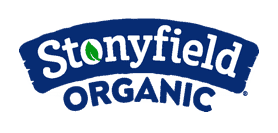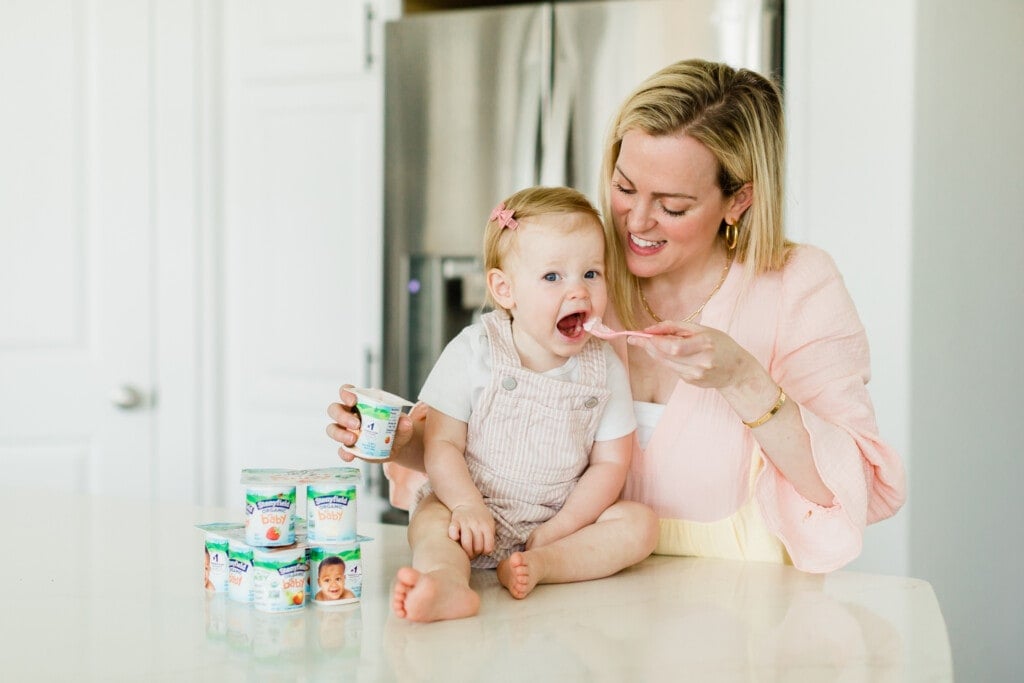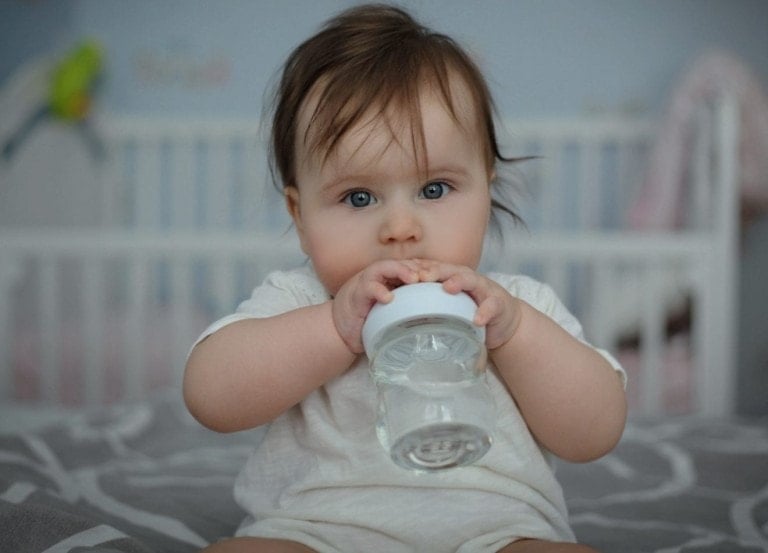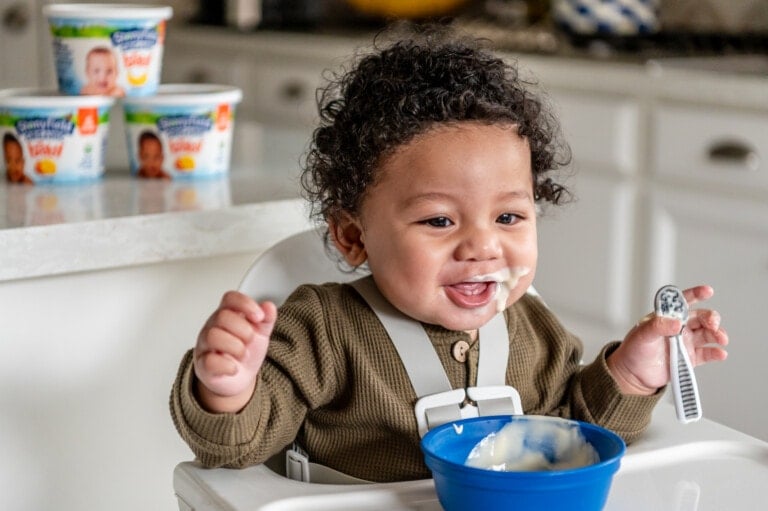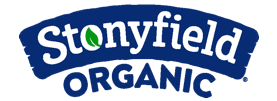Did you know that our bodies are filled with tiny living bacterial organisms that help us continually fight off disease? That’s right! Many parents have a negative association with the word “bacteria” and “virus,” but the truth is that most microorganisms are good for us, and our body needs a ton of them to stay healthy.1 They are so important, in fact, that our body consists of more bacteria than human cells!2 This is why probiotics are becoming more popular, including for our babies. Here’s what parents need to know.
What are Probiotics?
Collectively, probiotics are organisms that make up our body’s microbiome.3 They can include not only good bacteria but also fungi, parasites, and viruses. Consisting of thousands of different species, these little helpers coexist peacefully inside us, with the majority located in the gastrointestinal tract and throughout the body, including on our skin. When our bodies get stressed, it reduces our good bacteria count. As a result, this lowers our body’s immune function because bad bacteria take over the microbiome. This imbalance can make a person get sick and can increase inflammation in the body. One of the best and easiest ways to combat this problem is by regularly incorporating probiotics into the diet.
We can give our babies probiotics through the food we eat when they are in utero. After they’re born, we provide probiotics through our breastmilk or baby formula. Once they reach six months old, they get probiotics through solid foods. A great source of probiotics for babies six months and older is yogurt, and my favorite is Stonyfield Organics.
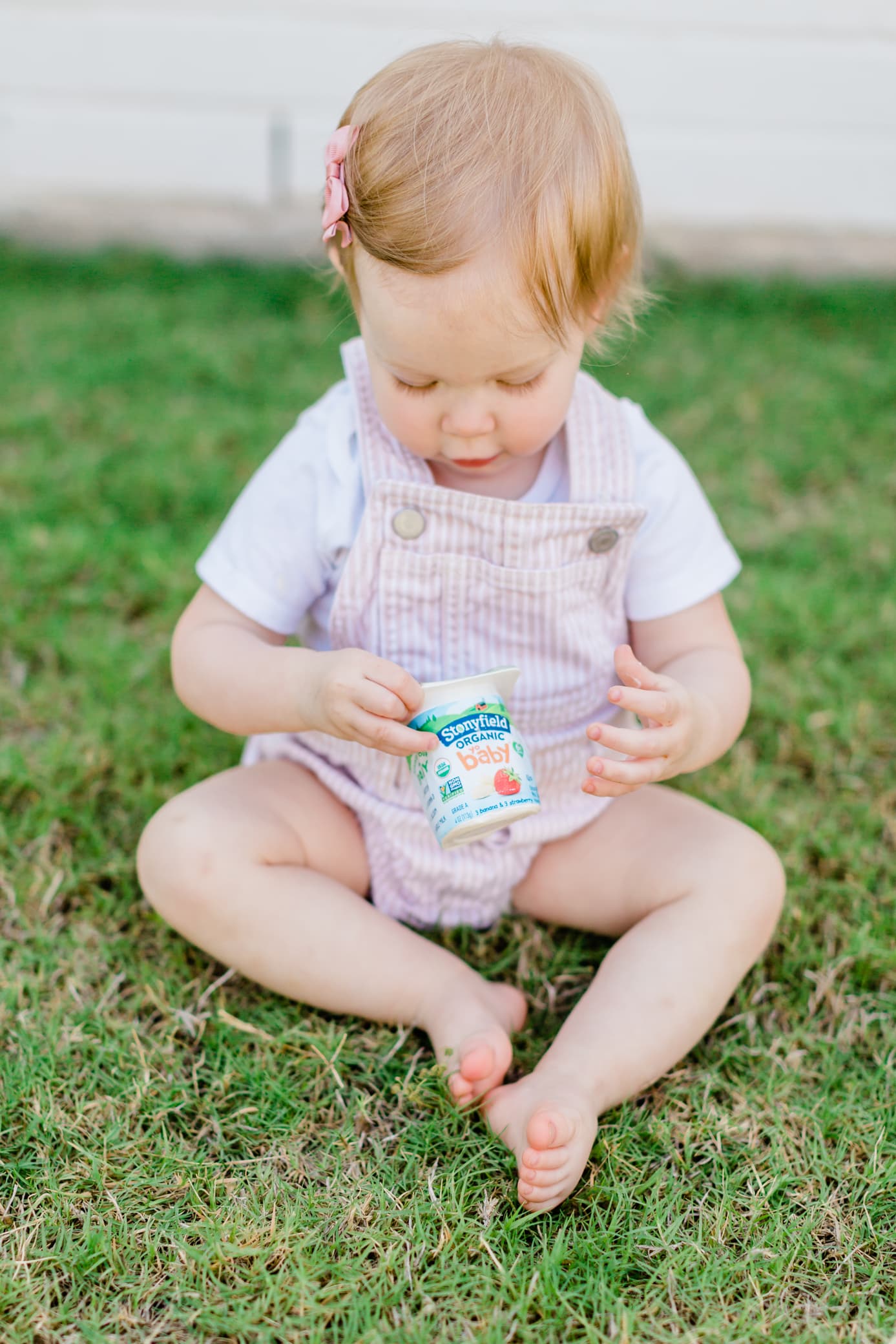
What are Prebiotics?
Prebiotics act in concert with probiotics, essentially providing the microbiome with energy.4 You’ll find prebiotics in grains, fruits, and vegetables. Essentially, prebiotics are carbohydrates that your body can’t digest, so they travel to your lower digestive tract, where they become food for healthy bacteria to grow and flourish.
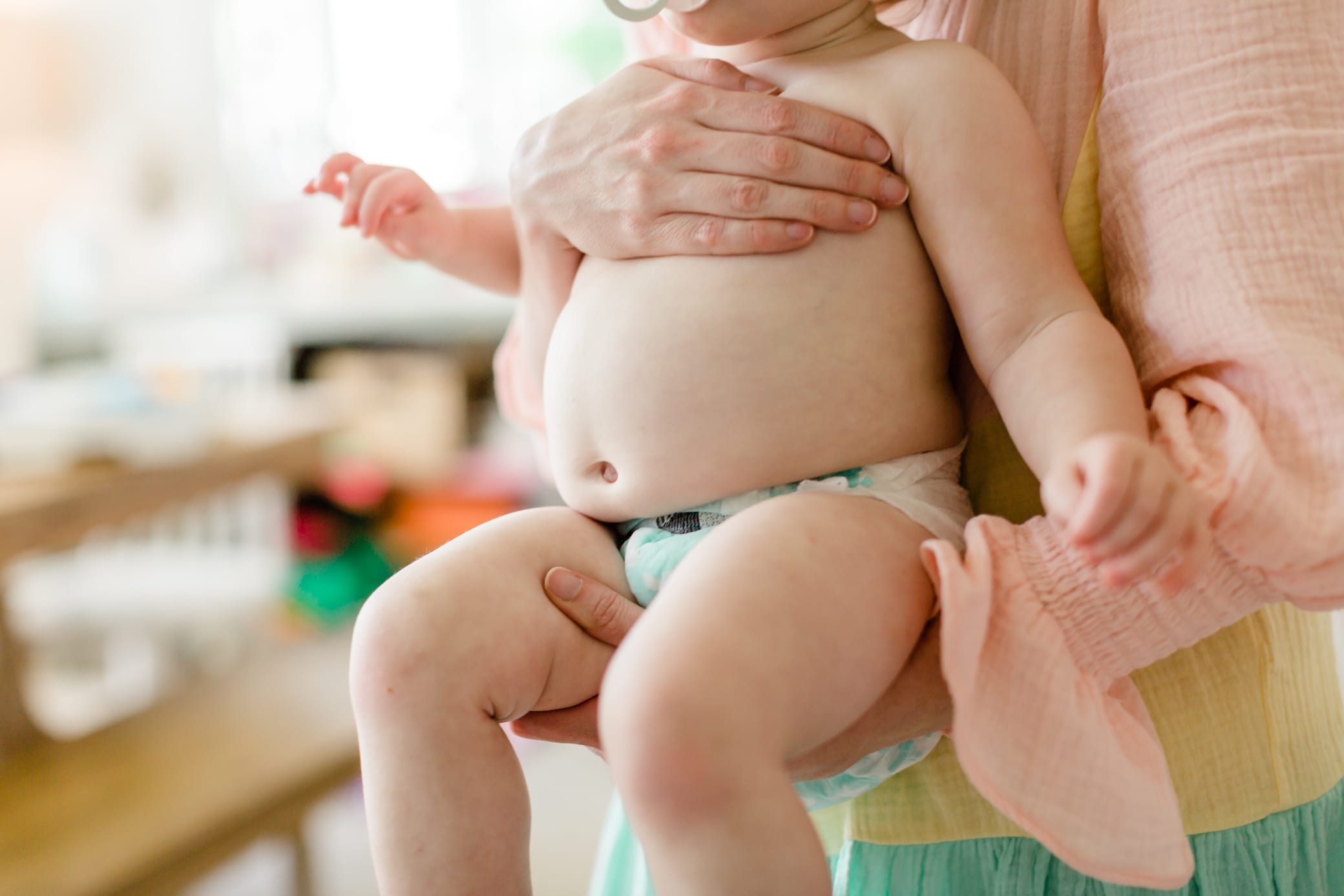
Why are Probiotics Good for My Baby?
These single-celled organisms called probiotics stimulate our baby’s immune system, help digest food, destroy disease-causing pathogens, and make vitamins.5 Probiotics are essential for your growing baby. Leading studies demonstrate a correlation between increased health and a robust microbiome.6
One report showed that probiotics are highly effective in reducing spit-up, constipation, and crying during the first three months of your baby’s life.7 Another revealed that supplementing with the probiotics L. rhamnosus, L. paracasei, and B. longum while pregnant and nursing can significantly lower the risk of eczema in infants.8
Stonyfield Baby Food Products Containing Probiotics
You may have seen the term “live & active cultures” on the side of a yogurt product. This term refers to probiotics! The Stonyfield baby food products contain S. thermophilus, L. bulgaricus, L. acidophilus, Bifidus, and L. paracasei.
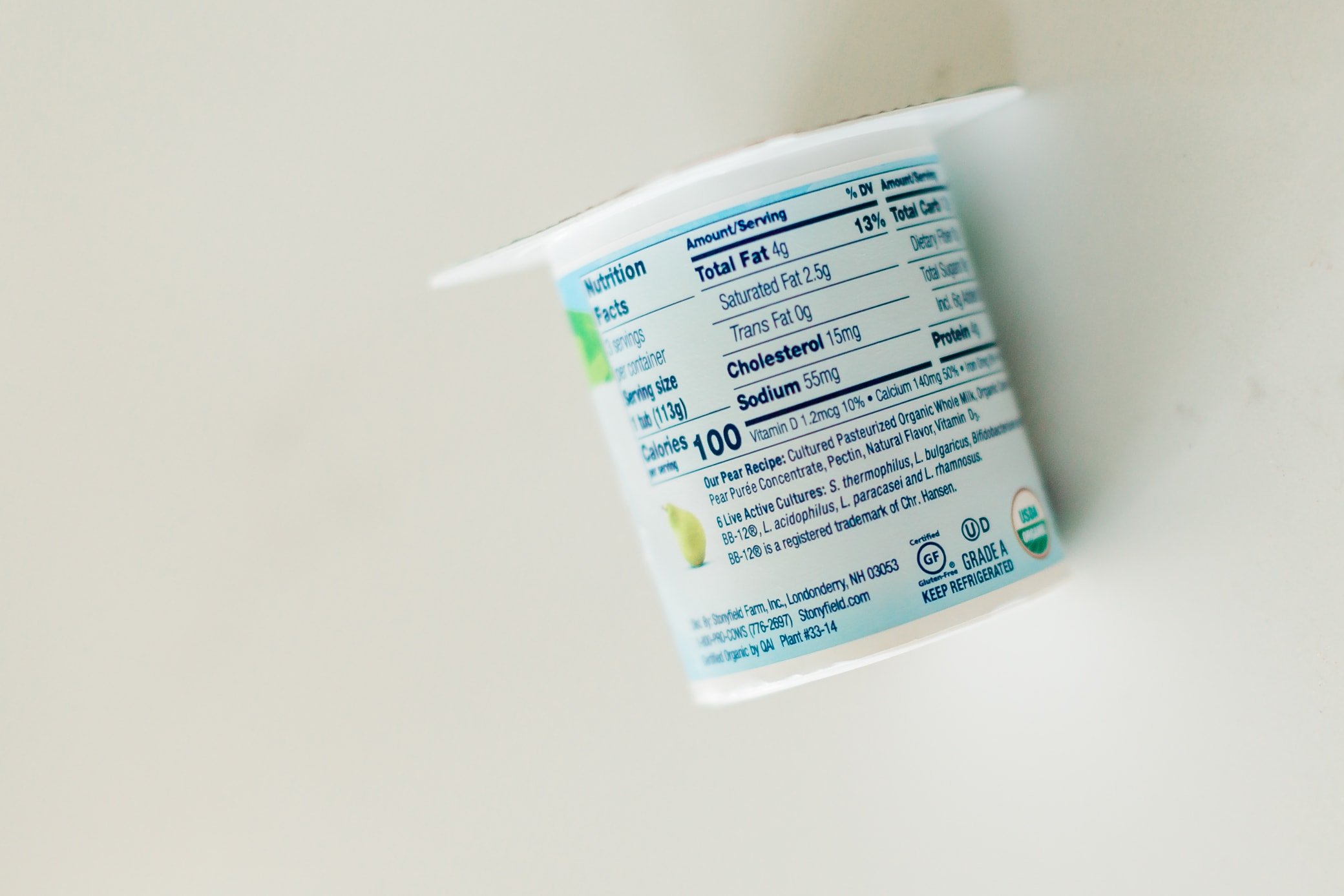
YoBaby® Whole Milk Yogurt Cups – Peach/Pear, Banana/Strawberry, or Blueberry/Apple, Plain, or Vanilla (Whole Milk | 4 oz 6-Pack)
Stonyfield YoBaby® yogurt cups come in multiple delicious flavors! You can choose from a Peach/Pear combo, Banana/Strawberry, Blueberry/Apple, Plain, or Vanilla. Filled with probiotics, these are a great and delicious way to introduce your baby to solids while giving your little one a healthy start.
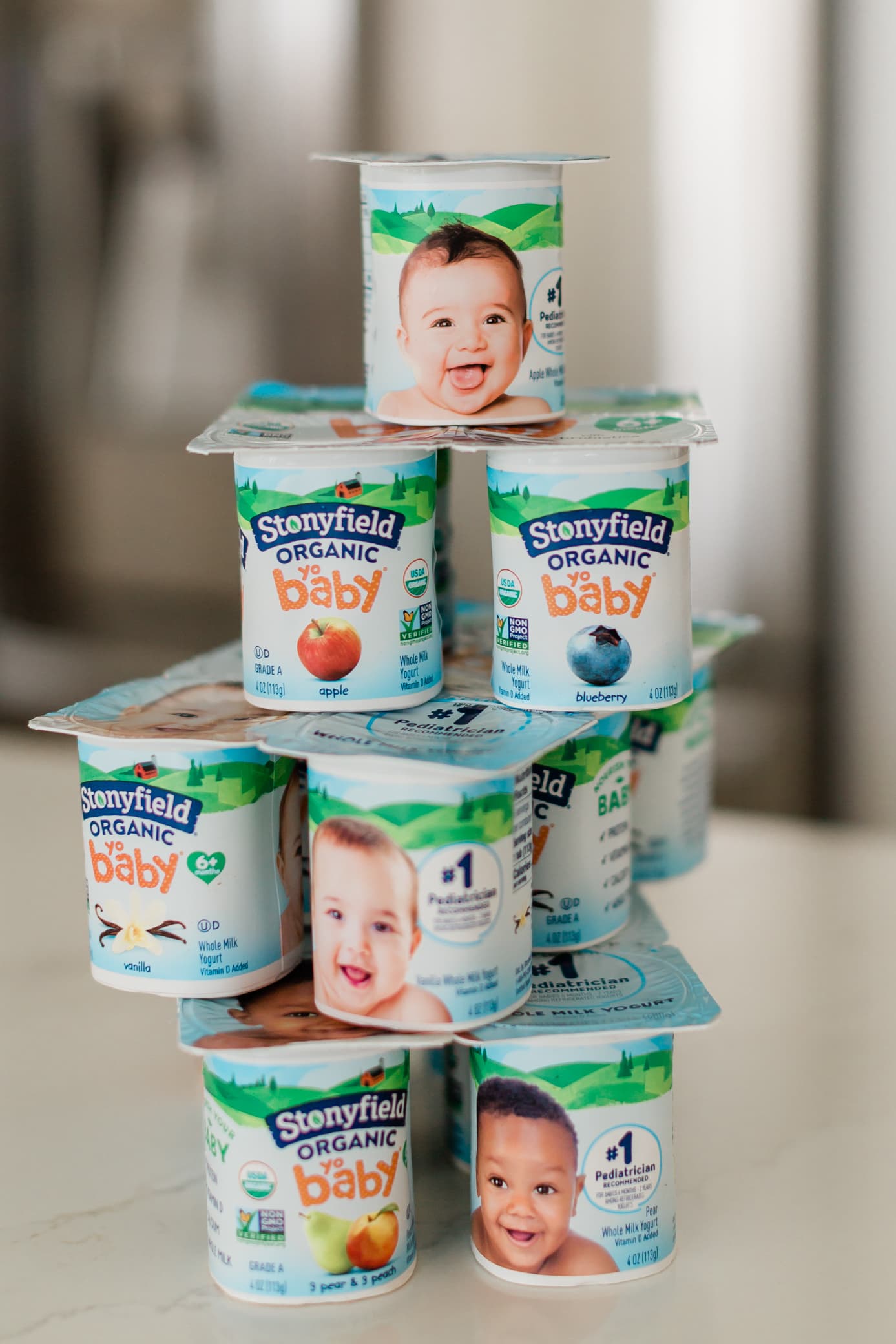
YoBaby®, like all of Stonyfield’s yogurts, is organic, which means it’s made without artificial growth hormones, antibiotics, harmful, persistent pesticides, or genetically modified organisms (GMOs), so you can rest easy that the food you’re giving your child is the highest quality possible.
I recommend starting with Stonyfield YoBaby® Plain and swirling it into baby’s cereal or vegetable or fruit puree. The creamy, mild taste makes YoBaby® Plain an ideal first yogurt to introduce to your baby because it’s made with cultured pasteurized organic whole milk, pectin, and Vitamin D3, as well as the following live active cultures: S. thermophilus, L. bulgaricus, Bifidobacterium animalis lactis BB-12®, L. acidophilus, L. paracasei, and L. rhamnosus. (BB-12® is a registered trademark of Chr. Hansen.) Then you can begin introducing the different flavors to your baby and see which ones your baby prefers. We have yet to meet a baby that doesn’t like Stonyfield YoBaby yogurt!
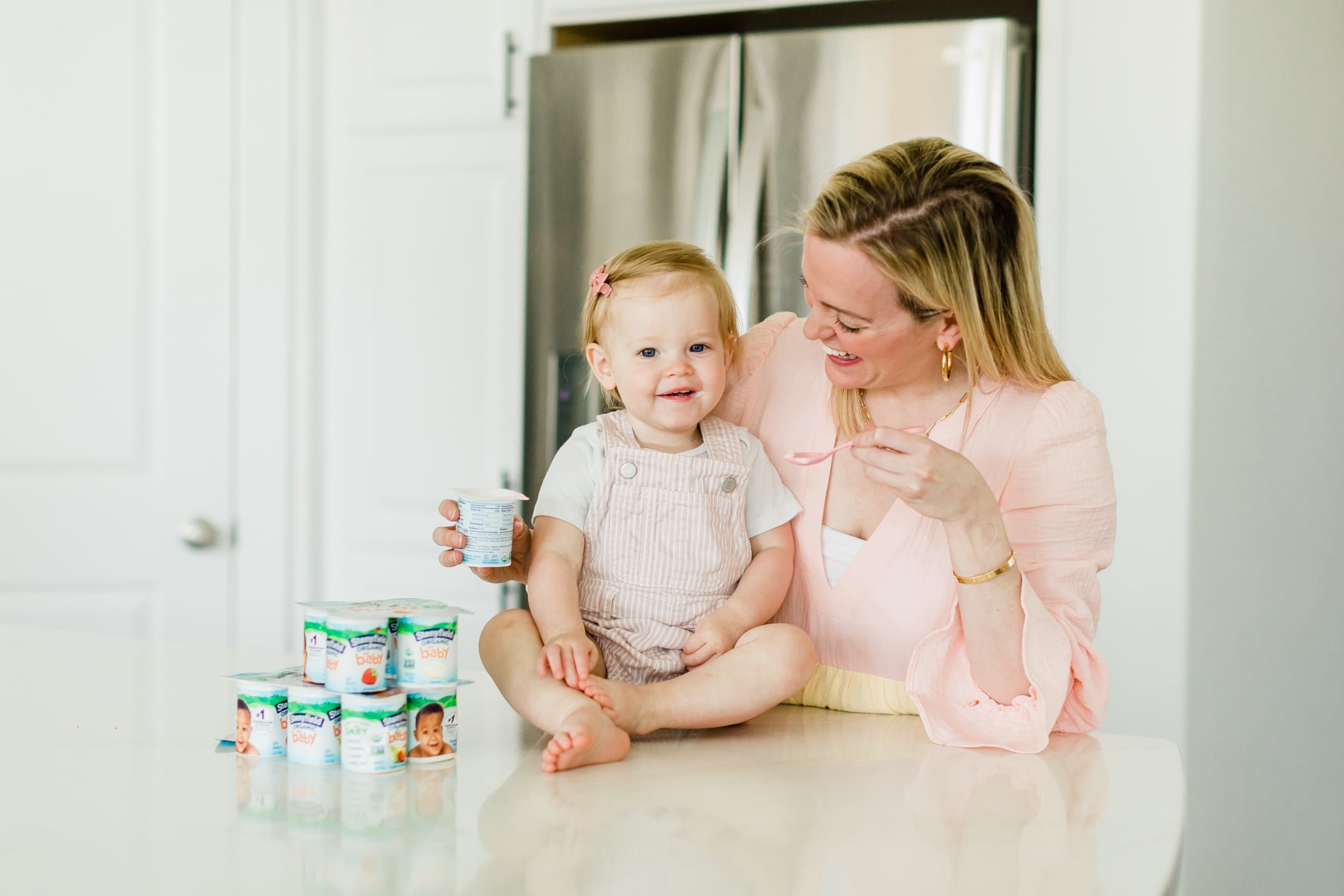
Stonyfield YoBaby® yogurts are made with whole milk, which helps babies get their necessary calories from fat for healthy brain development. In fact, babies need a higher amount of calories for the critical brain development that happens before age two.9
YoBaby® Pouch – Peach and Oat or Banana and Oat (Whole Milk | 3.4 oz Pouch 4-Pack)
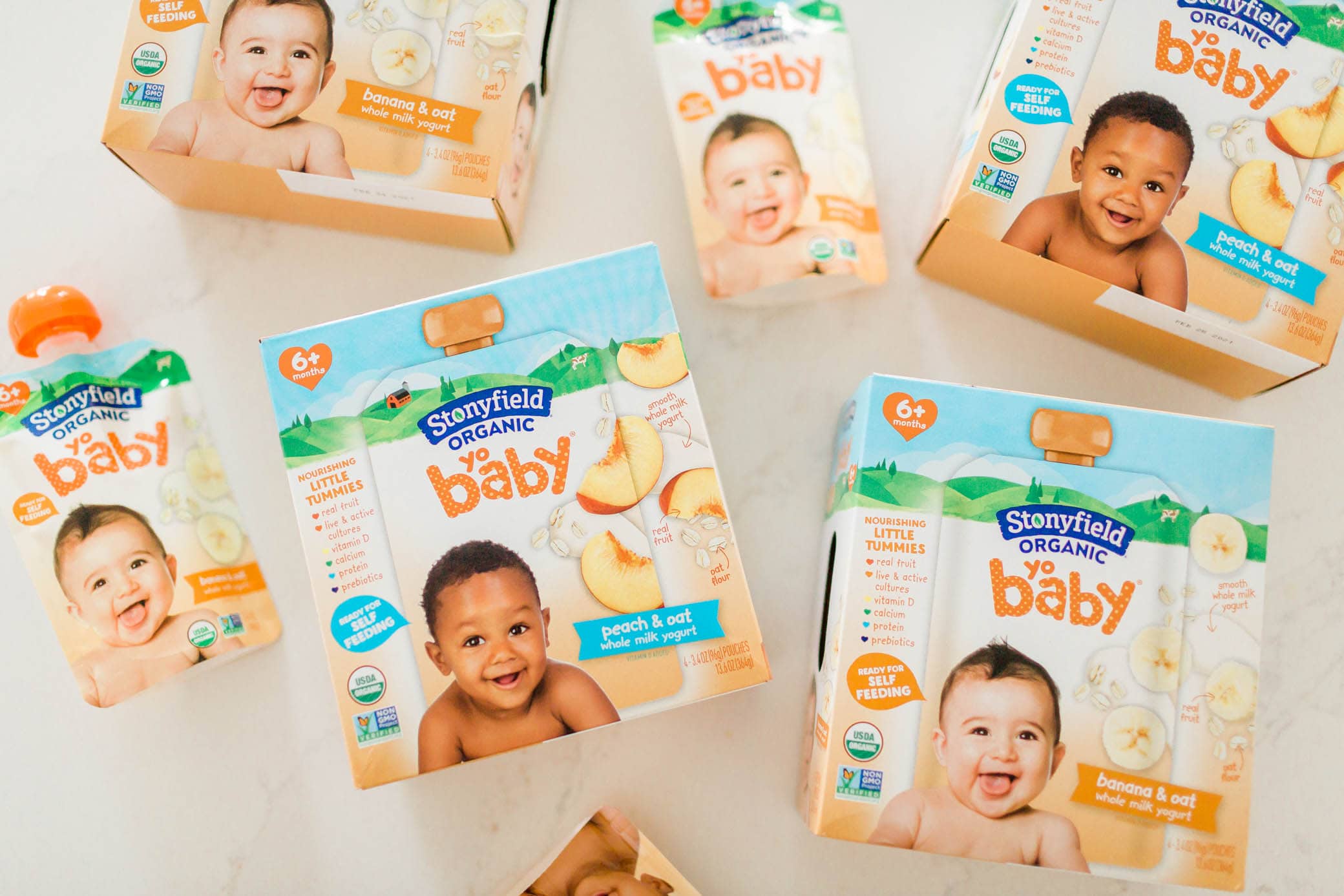
Stonyfield YoBaby® pouches are perfect for taking on the go or doling out at snack time. They are completely nourishing with real fruit, live and active cultures (probiotics), vitamin D, calcium, protein, and prebiotics! YoBaby® pouches build up good bacteria in your baby’s gut and optimize bone health and calcium intake. They’re a great option when you are teaching your baby to self-feed.
Stonyfield YoBaby® Highlights:
- Whole Milk
- USDA Organic
- Pasture Raised
- Gluten-Free
- Live & Active Cultures
- Prebiotics
- Kosher Certified
- Non-GMO Project Verified
How Can I Introduce Probiotics to My Older Kids?
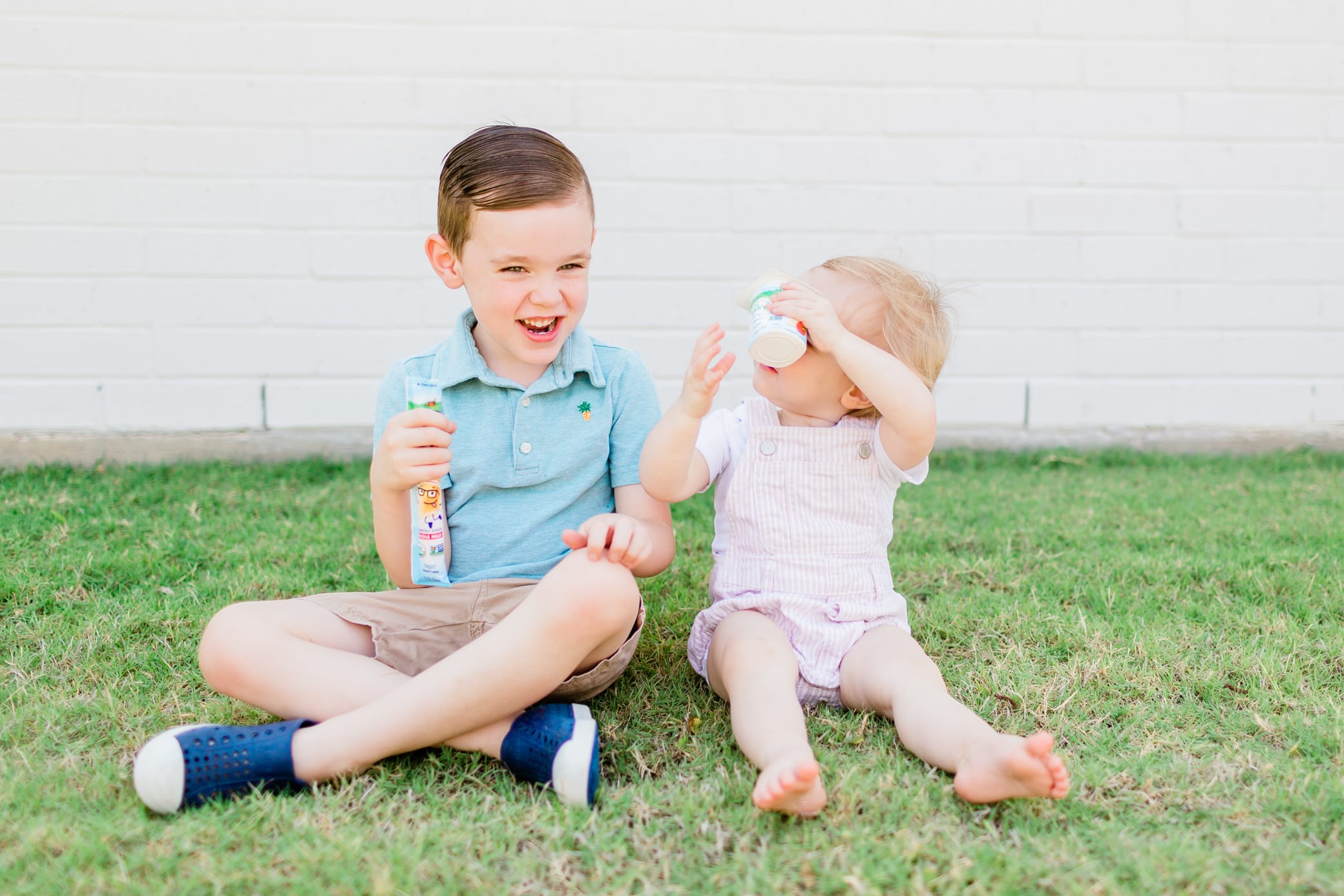
If you have older kids living under your roof, or if you are pregnant, breastfeeding, or simply looking to increase your own intake of probiotics, check out Stonyfield’s other products. Kids will love the yogurt pouches that come in many different flavors, the yogurt tubes, and the yogurt and cereal combo packs. Introduce your kids to the word probiotics at a young age by explaining that probiotics are good for babies, kids, and adults because they make our bodies stronger and healthier.
Final Thoughts
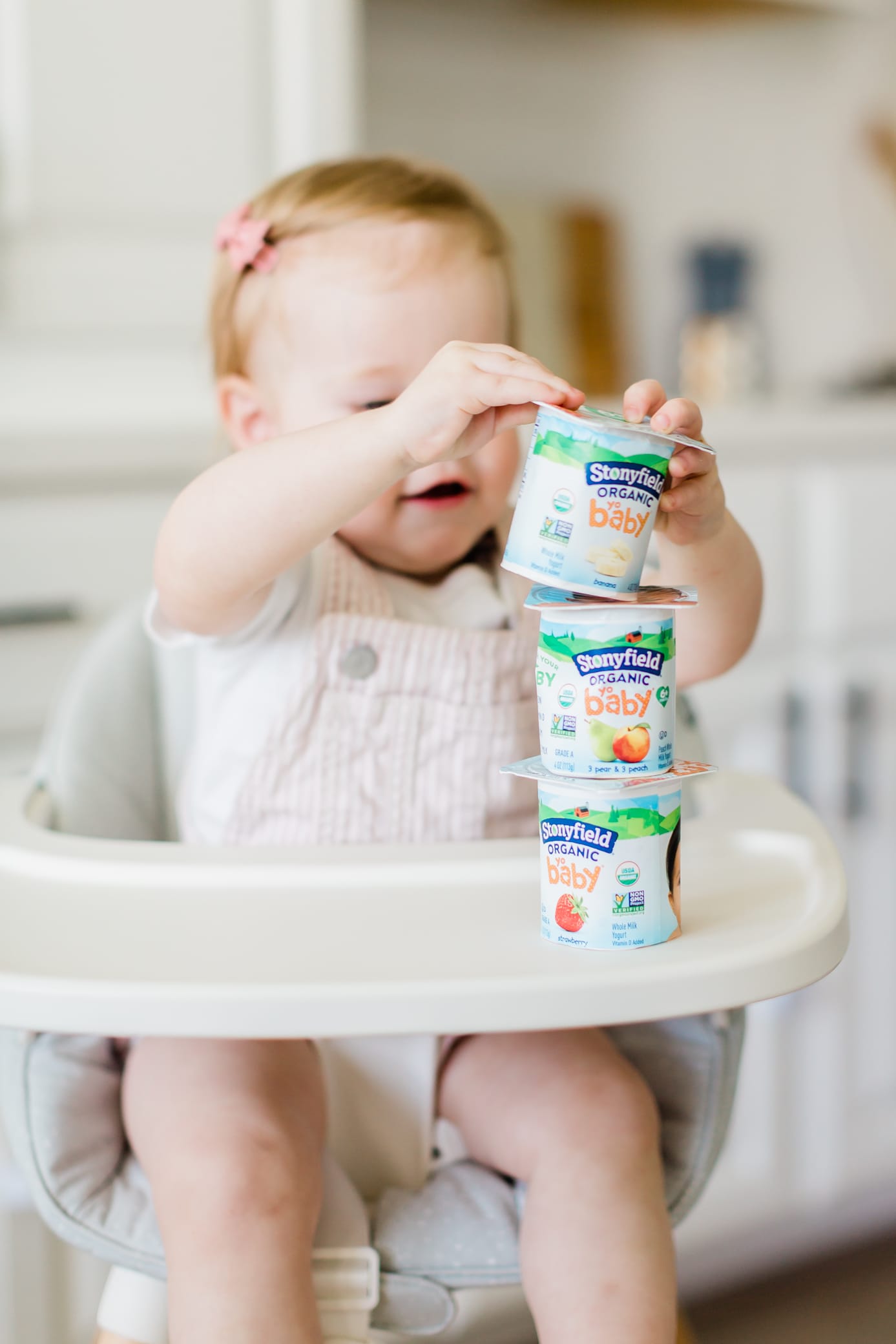
Stonyfield YoBaby® organic yogurts are made especially for babies six months to two years old – and they’re #1 Pediatrician Recommended!10 Every mom can feel confident choosing these yogurt products as they are made with only organic whole milk and without artificial hormones, toxic persistent pesticides, and GMOs. They are a favorite in our home and I know they will be a favorite in yours.
View this post on Instagram













